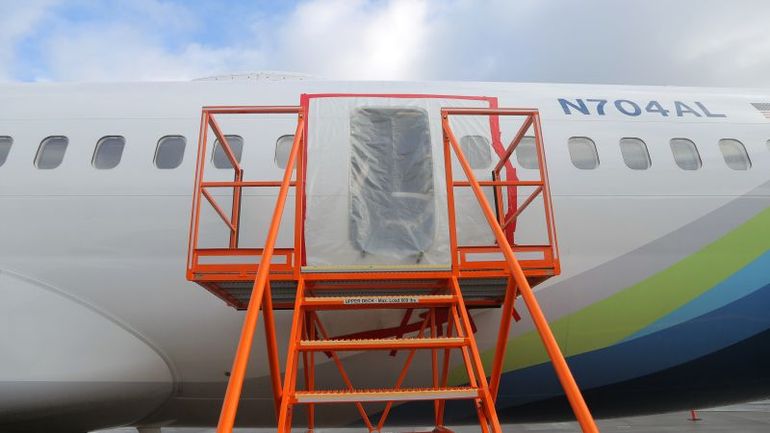
Boeing Given 90-Day Deadline by FAA to Address Quality Concerns

The Federal Aviation Administration has mandated that Boeing present a comprehensive plan within 90 days to rectify critical quality and safety concerns. Find out how Boeing is gearing up to tackle these pressing issues.
Boeing has been instructed by the Federal Aviation Administration to develop a plan within 90 days to address significant quality and safety concerns. The demand was made by FAA Administrator Mike Whitaker during a day-long meeting with Boeing CEO Dave Calhoun on Tuesday.
The meeting took place the day following a year-long investigation commissioned by the FAA which revealed a lack of communication between Boeing executives and employees regarding safety concerns. The report also highlighted that employees were apprehensive about reporting safety issues due to the fear of reassignment or hindrance in career advancement.
This meeting occurred before the upcoming release of a six-week audit by the FAA on Boeing's production line. This audit was initiated after investigators discovered that crucial bolts were missing on a Boeing 737 Max 9 door plug, leading to its opening during a flight.
The FAA has stated that Boeing's plan must focus on addressing deficiencies in implementing the company's Safety Management System (SMS) and integrating it with another quality program. The SMS is a manual designed to provide guidance to employees on safety procedures for ensuring the safety of aircraft. Despite a recent complete overhaul of the manual, the panel found that many Boeing employees lacked knowledge of the company's SMS initiatives, as well as its purpose and procedures.
Boeing CEO Dave Calhoun departs from a meeting at the office of Sen. Mark Warner (D-VA) on Capitol Hill January 24, 2024 in Washington, DC.
Boeing CEO Dave Calhoun departs from a meeting at the office of Sen. Mark Warner (D-VA) on Capitol Hill January 24, 2024 in Washington, DC.
Anna Moneymaker/Getty Images
The FAA's new directive sets a faster timeline for Boeing to address safety shortcomings identified by a panel on Monday.
According to the FAA, Boeing's resulting plan must bring about a "measurable, systemic shift in manufacturing quality control."
Boeing's history has been marred by safety lapses, with the January 5 blowout incident leading to a 19-day emergency grounding of all Max 9s. This event also reignited scrutiny of Boeing in light of the fatal Max 8 crashes of 2018 and 2019.
This report includes contributions from CNN's Chris Isidore.
This is a developing story and will be updated.
Editor's P/S:
The FAA's directive to Boeing is a necessary step to address the ongoing safety concerns surrounding the aircraft manufacturer. The investigation's findings expose a systemic failure within Boeing's culture, where employees felt intimidated or fearful of reporting safety issues. This is a serious breach of trust that must be rectified immediately. Boeing's plan must prioritize fostering a culture of open communication and accountability, where employees feel empowered to raise concerns without fear of reprisal.
Moreover, the missing bolts incident highlights the critical need for rigorous quality control measures. Boeing's plan must include a comprehensive review of its production line and implementation of robust safety protocols to prevent such lapses in the future. The FAA's directive sets a strict timeline for Boeing to address these issues, and it is imperative that the company takes this opportunity to make meaningful and lasting changes. By prioritizing safety and transparency, Boeing can rebuild trust and restore confidence in its products and operations.














